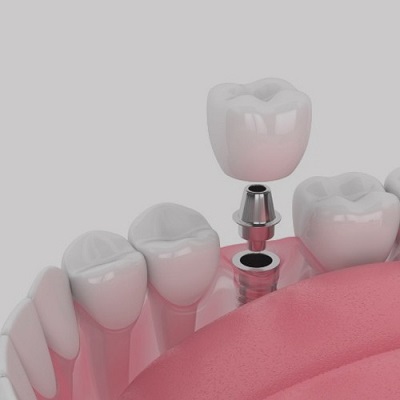Getting dental implants is a significant step towards restoring your smile and dental functionality. However, after the procedure, it’s essential to follow specific dietary guidelines to ensure a smooth recovery. As recommended by experts at the leading Dental implants Clinic in Dubai, avoiding certain foods can play a crucial role in your healing process. This article will outline the foods you should avoid after receiving dental implants, helping you make informed choices for your post-operative care.
Understanding the Healing Process:
After the dental implant procedure, your body needs time to heal. The implant is surgically placed into the jawbone, and over time, it integrates with the bone—a process known as osseointegration. During this period, it’s crucial to avoid foods that can disrupt this healing process or lead to complications.
Initial Healing Stage: The first few days following the surgery are vital. Your body is focusing on healing, and eating the right foods can significantly influence your recovery.
Long-Term Considerations: While some foods may only need to be avoided temporarily, others may be best limited in the long run to ensure the health of your implants.
Foods to Avoid Immediately After Surgery:
The first week post-surgery is critical for your recovery. During this time, certain foods should be strictly avoided to minimize discomfort and promote healing.
Hard Foods: Foods that require significant chewing, such as raw vegetables, nuts, and hard candies, can put excessive pressure on your new implants. It’s best to avoid these until your dentist advises otherwise.
Crunchy Snacks: Chips, popcorn, and similar snacks can be harmful as they may get lodged in the surgical area and cause irritation or infection.
Sticky Foods: Foods like caramel, taffy, or even some kinds of bread can adhere to your gums and implants, making it difficult to clean the area and increasing the risk of complications.
Foods That Can Cause Irritation:
After the initial healing period, you might still need to be cautious with what you eat. Some foods can irritate the gums and affect the implant site even if you feel better.
Spicy Foods: Spices can irritate the sensitive tissues around your implants, leading to discomfort and swelling. Opt for bland foods during your recovery.
Acidic Foods: Citrus fruits, tomatoes, and vinegar-based dressings can cause stinging or discomfort in healing gums. These foods may also contribute to inflammation in the implant area.
Rough Textures: Foods with rough textures, such as certain types of bread crusts, can scrape against your gums and cause irritation.
Be Cautious with Temperature:
The temperature of the foods you consume can also play a role in your recovery.
Hot Foods and Beverages: Hot soups, teas, and other hot foods can increase swelling and discomfort. It’s advisable to let foods cool before consuming them.
Cold Foods: While cold foods can soothe swelling, extreme cold can also cause sensitivity. Avoid ice cream or frozen treats directly after surgery, as they can numb the area and mask potential discomfort.
Long-Term Dietary Adjustments:
Once the initial healing period has passed, there may still be foods that you should limit to ensure the longevity of your dental implants.
Sugary Foods: Excessive sugar can contribute to plaque buildup and increase the risk of gum disease, which can compromise the health of your implants. Consider reducing sugary snacks and beverages.
Alcohol: While moderate alcohol consumption may not significantly impact your implants, excessive drinking can hinder your body’s healing process. Discuss your alcohol consumption with your dentist, especially during recovery.
Hydration is Key:
Staying hydrated is essential for overall health and can aid in the healing process. However, it's crucial to choose your beverages wisely.
Carbonated Beverages: Soda and other carbonated drinks can create gas, leading to discomfort after surgery. Additionally, the sugars in these drinks can contribute to oral health issues.
Caffeinated Drinks: Caffeine can dehydrate you, so it’s essential to consume it in moderation. Consider limiting coffee and energy drinks, especially during the initial healing period.
The Importance of Soft Foods:
During your recovery, focusing on soft foods can help make your meals more enjoyable while protecting your dental implants.
Recommended Soft Foods: Yogurt, applesauce, mashed potatoes, and smoothies are excellent options that are easy to consume. These foods provide the necessary nutrients without putting undue stress on your implants.
Nutrient-Rich Choices: Incorporating foods rich in vitamins and minerals, such as soft fruits and cooked vegetables, can support your overall health and aid the healing process.
Following Your Dentist’s Guidelines:
Every patient is unique, and following your dentist's specific post-operative instructions is crucial.
Personalized Advice: Your dentist may provide tailored dietary recommendations based on your situation. Be sure to ask questions if you're uncertain about what to eat.
Regular Check-Ups: Schedule follow-up appointments to monitor the healing of your implants. Your dentist can assess your recovery and suggest dietary adjustments as needed.
Conclusion: Nourishing Your Recovery:
Navigating the dietary landscape after receiving dental implants is crucial for ensuring a successful recovery. By avoiding certain foods and focusing on soft, nutritious options, you can support your healing process and protect your new dental implants. Remember, the team at your dental implants clinic in Dubai is there to guide you. Embrace this journey towards a healthier, more confident smile by making informed choices about what you eat. Your diligence in maintaining proper care will pay off in the long run, allowing you to enjoy the benefits of your dental implants for years to come.





Comments